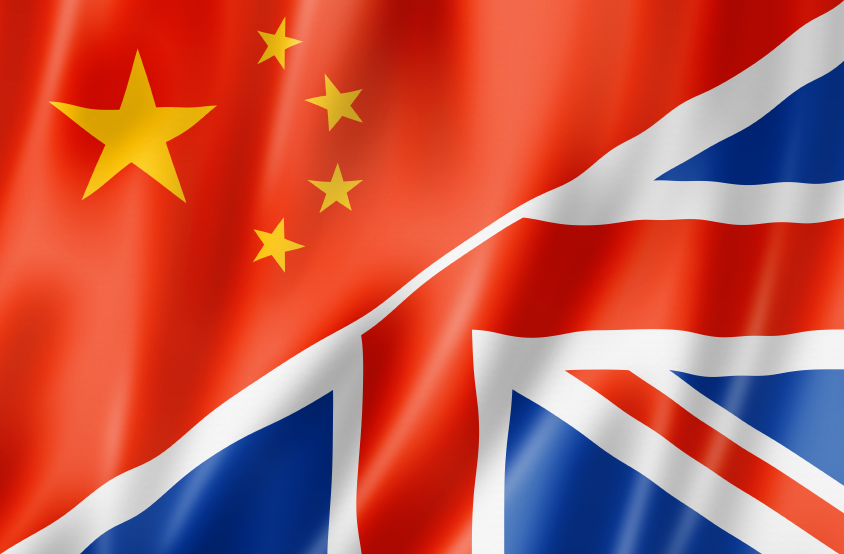Blog: The Third Wheel: Observers in the Arctic Council

Does the United Kingdom need an Arctic Ambassador?
According to the UK House of Lords Select Committee on the Arctic, which released a report last month that considers how the UK should respond to a changing Arctic, it does. Predictably, if not a little unfortunately, this became the main headline to emerge from their work.
It was predictable because many commentators have become preoccupied with the symbolic involvement of non-Arctic states in regional Arctic politics, and this has been boiled down to the observation of (1) whether they are Observers in the Arctic Council, and increasingly, (2) whether they have an Ambassador devoted to Arctic affairs. While these are objective criterion, I have seen little evidence that either designation leads to influence in regional policy making.
It was unfortunate because the recommendation for a UK Arctic Ambassador was amongst the least important, and least interesting, conclusions provided in the report, which overall provided a fairly marvelous account of contemporary Arctic politics. The Lords did their due diligence in answering the question of why the UK should be interested in the Arctic; but on the question of how they should be involved, well, that remains a pickle. This is not just a UK problem, and judging by precedence, it will not be solved by the appointment of an Ambassador. Consensus has emerged around the right of non-Arctic states to be involved in the work of the Arctic Council; but everyone is still at a loss regarding what they should be doing once they get there.
Background Check
The buzz around Observer applications, and in particular China’s and the European Union’s, dominated media coverage at the last Arctic Council Ministerial in Kiruna in May 2013, because it was proof of the growing status of the Arctic region in global affairs, and of Asian engagement in broader world politics.
But all the hoopla around the new Observers obscured the fact that non-Arctic states have always been at the table. Even before the Arctic Council was established, Poland, Germany and the United Kingdom were Observers of the Arctic Environmental Protection Strategy, and their participation was carried over to the Council at the first Ministerial in 1998, along with The Netherlands. France and Spain joined in the subsequent years. In addition to states, the Arctic Council has 20 intergovernmental and non-governmental Observers, eight of which have been around since the Council’s inception. No Observer has ever been expelled once admitted, though the Arctic Council Rules of Procedures now call for a review of their activities ever four years and they may be suspended if they engage in activities “at odds” with those of the Council.
The decision to admit China, Japan, Italy, Singapore, India and Korea in 2013 – and to defer the European Union’s bid as well as those of all non-state actors – was agonizing in the amount of time and effort it sucked out of the Kiruna Ministerial, and in the distraction from more concrete and impactful activities of the Arctic Council it caused. More Observer applications, from states as diverse as Mongolia, Turkey and Switzerland, have been submitted, and there is still the matter of what to do with the EU, now that their new free trade deal with Canada seems to have resolved the contentious seal product ban issue. But the Arctic Council wants to avoid a repeat of that particular sideshow at the Ministerial in Iqaluit next month. Tellingly, the issue of Observer admissions was not even an agenda item at the last Senior Arctic Officials’ plenary meeting in Whitehorse. It remains unknown, perhaps even to the Arctic states and Permanent Participants themselves, how – or even if -new applications will be judged next month.
I’m Just Here to Watch
The irony is, even though the question of Observer states to the Arctic Council – and more particularly, China – has made some of the biggest headlines, the non-Arctic states have demonstrated almost no influence in the Council’s affairs. By most accounts, they sit quietly in the back, rarely if ever offering oral interventions into the proceedings, and providing uneven and mostly token representation at Working Group meetings.
One of the more frank sections in the UK Lords’ report had Jane Rumble, the UK Polar Regions Department Head, concede that “Some of the Arctic states say, ‘You should come along more often’”, echoed by Norwegian Ambassador Eikeland, who stressed that “Observers cannot come to only one meeting in a working group and then come back next year, and expect to have influence. You have to have continuity and you need commitment.”
A few things seem to be preventing greater Observer participation. The first is that they are Observers, not members, and rightfully play a secondary role in the work and leadership of the Arctic Council. The second is the sheer expense of time, money and technical expertise required to participate in the many working groups, expert groups and task forces of the Arctic Council, many in far flung and remote locations. The former might be worth a greater commitment if their proceedings were more contentious or counter to the interests of the non-Arctic states. But they appear to be fairly rational, procedural and frankly tedious events that advance, at varying speeds, the stated goals of both Arctic and non-Arctic states, distilled into issues such as bird migration and passenger ship safety. The notorious land grabs and ocean carvings alluded to in the media don’t actually take place at these meetings.
A few of the non-State Observers, such as WWF and the Association of World Reindeer Herders, have been vocal and active in the Working Groups. Others, such as the (ad hoc) EU and the Nordic Council of Ministers, have funded various projects. But these are exceptions rather than the rule. Nonetheless, there is no end to work that could and should be done to further the Arctic Council’s twin mandates of environmental protection and sustainable development, and, it must be said, much opportunity exists and could be seized outside the parameters of the Council.
Watch and Learn
The question no longer seems to be who should be an Observer, but how one should be an Observer. There seems to be broad acceptance, including from Permanent Participants, that there is a role and a right for non-Arctic states and organizations to be involved in the governance of the region, especially with regards to the transnational issues that non-Arctic states both impact and are impacted by. Money is tight and more would be helpful, but it has not tended to flow more freely outside of the Arctic states. Contributions of expertise is needed but is also in short supply, and more readily comes from scientific networks than foreign ministries. It is hard not to conclude that all of the intrigue and speculation around the Observer Question is wildly overblown.
On the question put by the Lords as to whether or not the UK needs an Arctic Ambassador, Ms. Rumble testified that the Polar Regions Department had considered the option and concluded “probably not.” They may be wise to heed her advice. Ambassadorships seem to have been neither necessary nor sufficient to provide leadership on behalf of non-Arctic states. If the UK fears being “outmaneuvered” by non-Arctic “competitor states” such as France and Japan, as it stated in its post-report press release, it should concentrate resources in contributing to the Arctic Council at the level of Working Groups. This is not rocket science, yet a void exists. Will savvy Observers find a way to fill it?
Related stories from around the North:
Canada: Arctic Council: The evolving role of regions in Arctic governance, Blog by Heather Exner-Pirot
Finland: US seeks Finnish support for Arctic goals, Yle News
Greenland: Greenland urged to work with Arctic Council, CBC News
Iceland: Iceland conference draws on hopes, concerns for changing Arctic, Alaska Dispatch
Norway: Permanent Arctic Council Secretariat opens in Tromso, Blog by Mia Bennett
Russia: The Arctic Council’s Immunity to Crimean Flu, Blog by Heather Exner-Pirot
Sweden: Russia still open for cooperation in the Arctic, Radio Sweden
United Kingdom: The British Invasion – The Arctic Circle and observer states, Blog by Heather Exner-Pirot
United States: Alaska passes Arctic policy bill, Alaska Dispatch



